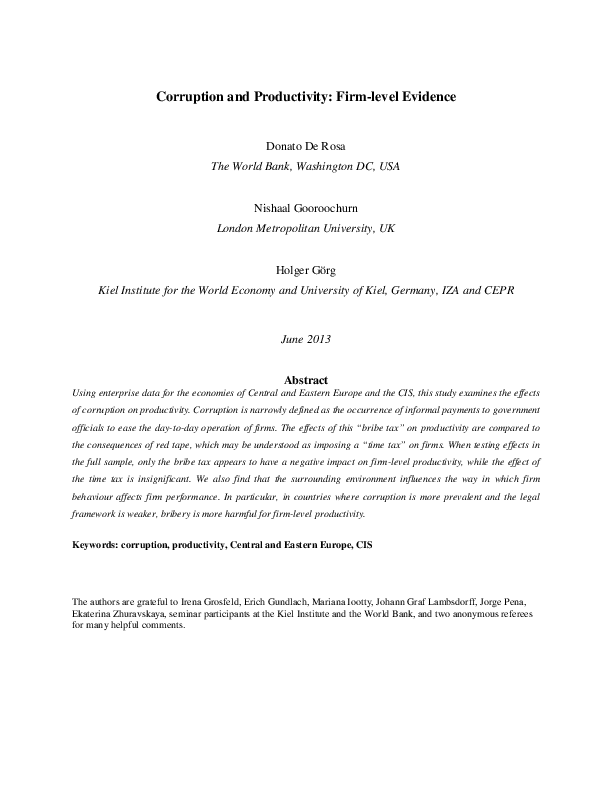Journal Article
Corruption and Productivity: Firm-level Evidence
Autoren
Erscheinungsdatum
DOI
Schlagworte
Schwellen-& Entwicklungsländer
Unternehmen
Using enterprise data for the economies of Central and Eastern Europe and the CIS, this study examines the effects of corruption on productivity. Corruption is narrowly defined as the occurrence of informal payments to government officials to ease the day-to-day operation of firms. The effects of this “bribe tax” on productivity are compared to the consequences of red tape, which may be understood as imposing a “time tax” on firms. When testing effects in the full sample, only the bribe tax appears to have a negative impact on firm-level productivity, while the effect of the time tax is insignificant. We also find that the surrounding environment influences the way in which firm behaviour affects firm performance. In particular, in countries where corruption is more prevalent and the legal framework is weaker, bribery is more harmful for firm-level productivity.




